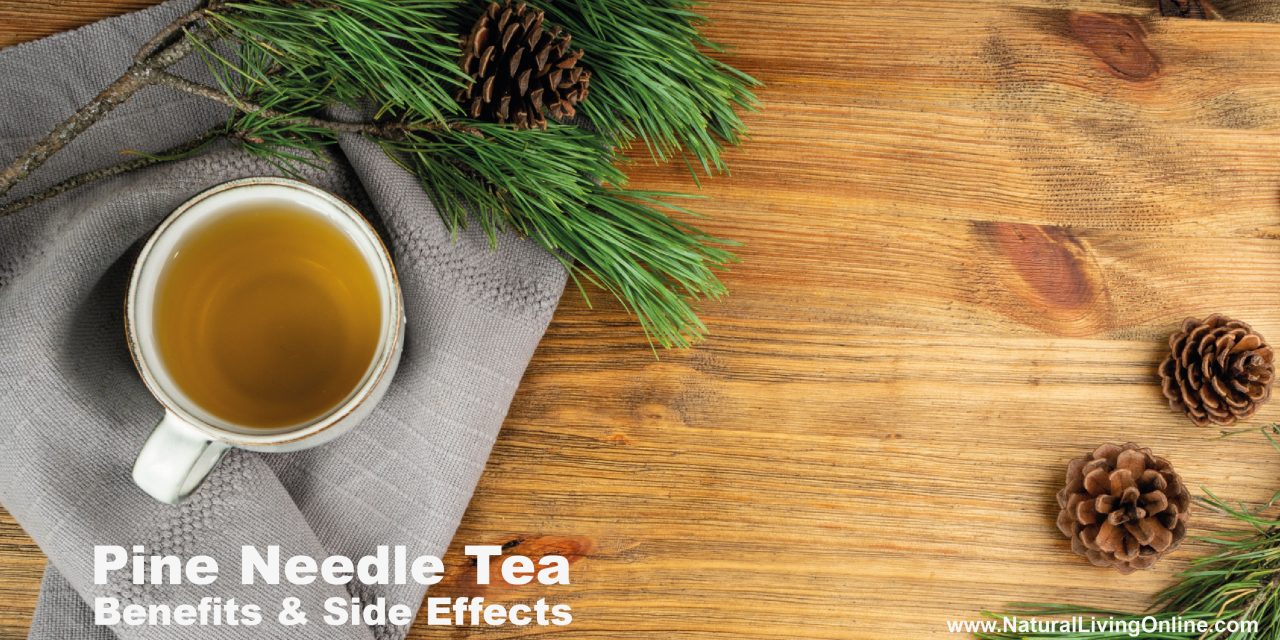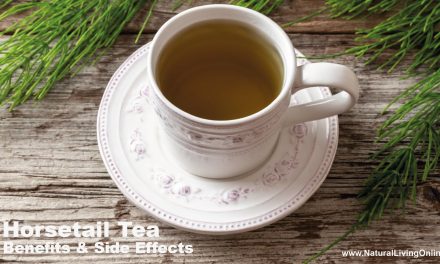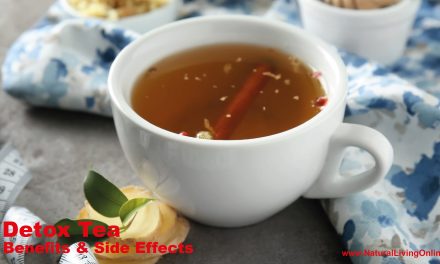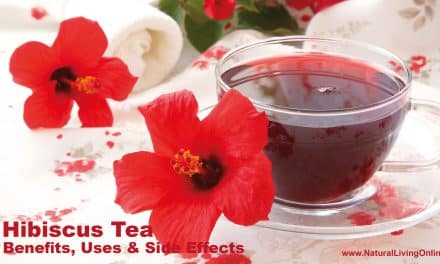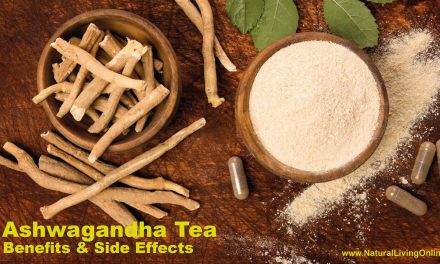Pine needle tea has been cherished for centuries due to its numerous health benefits and unique flavor. This refreshing drink, made from the needles of pine trees, is rich in vitamin C and antioxidants. Pine needle tea can help boost the immune system, reduce inflammation, and improve overall health.
Beyond its health properties, pine needle tea holds a special place in various cultures. Native Americans and other indigenous peoples have long used it for its medicinal properties and as a vital source of nutrients during winter months. Today, foraging for pine needles and brewing your own tea can be both a rewarding and healthy practice.
Whether you’re interested in its historical roots or potential therapeutic effects, pine needle tea offers a blend of tradition and modern health benefits that’s worth exploring. From its role in traditional practices to its current applications in wellness, there’s much to discover about this remarkable beverage.
Key Takeaways
- Pine needle tea boosts the immune system and reduces inflammation.
- It has significant historical and cultural importance among Native Americans.
- Foraging for pine needles can be a healthy, rewarding practice.
Nutritional Profile and Health Properties
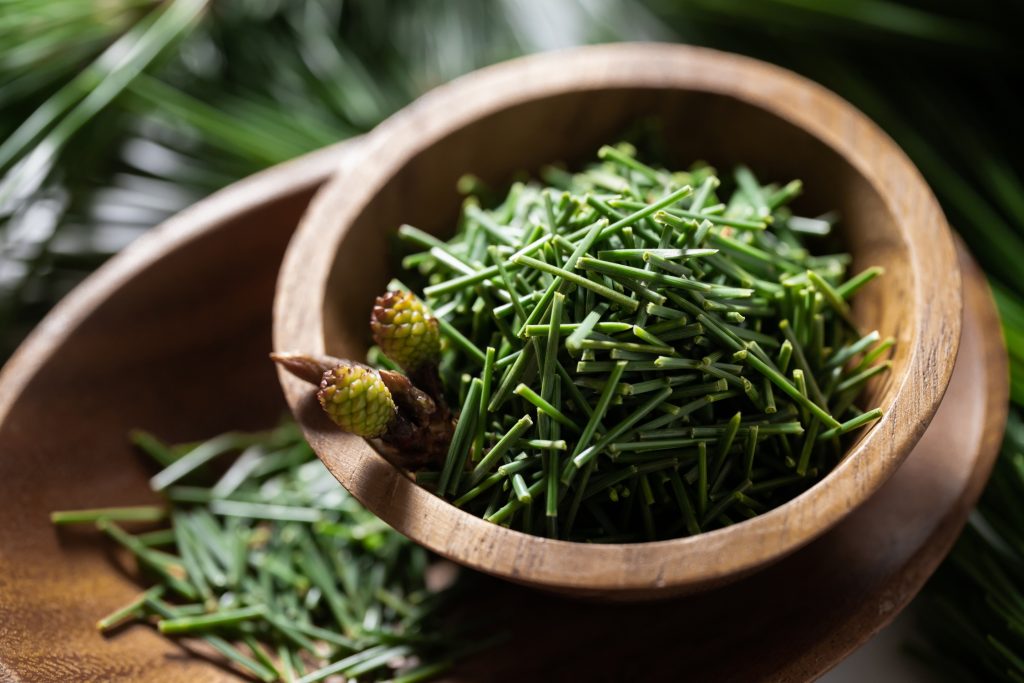
Pine needle tea offers various health benefits due to its rich content of vitamins, antioxidants, and bioactive compounds. These elements play a crucial role in supporting overall health, reducing oxidative stress, and promoting anti-aging effects.
Vitamins and Antioxidants
Pine needle tea is a valuable source of vitamin C and vitamin A. Vitamin C is known for its powerful antioxidant properties, which can help reduce oxidative stress and support the immune system. Regular consumption of pine needle tea can also enhance skin health and promote wound healing.
Vitamin A, on the other hand, is essential for maintaining good eyesight and supporting bone health. This vitamin also aids in skin health, making pine needle tea beneficial for those looking to improve their complexion. Together, these vitamins help combat the degenerative effects of aging.
Pine needle tea is also rich in flavonoids and other antioxidants that fight free radicals. These compounds can help protect the body from various diseases and improve overall well-being. The abundant antioxidants in pine needle tea make it an excellent beverage for those seeking natural ways to enhance their health.
Essential Oils and Bioactive Compounds
Pine needle tea contains several essential oils and bioactive compounds with multiple health benefits. Alpha-pinene, a major component of these essential oils, is known for its anti-inflammatory and antimicrobial properties. This helps in promoting respiratory function and boosting overall immunity.
Another key compound found in pine needle tea is shikimic acid, an ingredient known for its antiviral properties. This compound can aid in reducing the severity of viral infections and support a healthy immune response.
The tea is also rich in proanthocyanidins, which have strong antioxidant effects. These bioactive compounds are effective in reducing oxidative stress and supporting cardiovascular health. Additionally, the presence of arginine in pine needle tea contributes to improved blood flow and cardiovascular function.
In summary, the essential oils and bioactive compounds in pine needle tea provide substantial health benefits, making it a great addition to a balanced diet.
Potential Therapeutic Effects
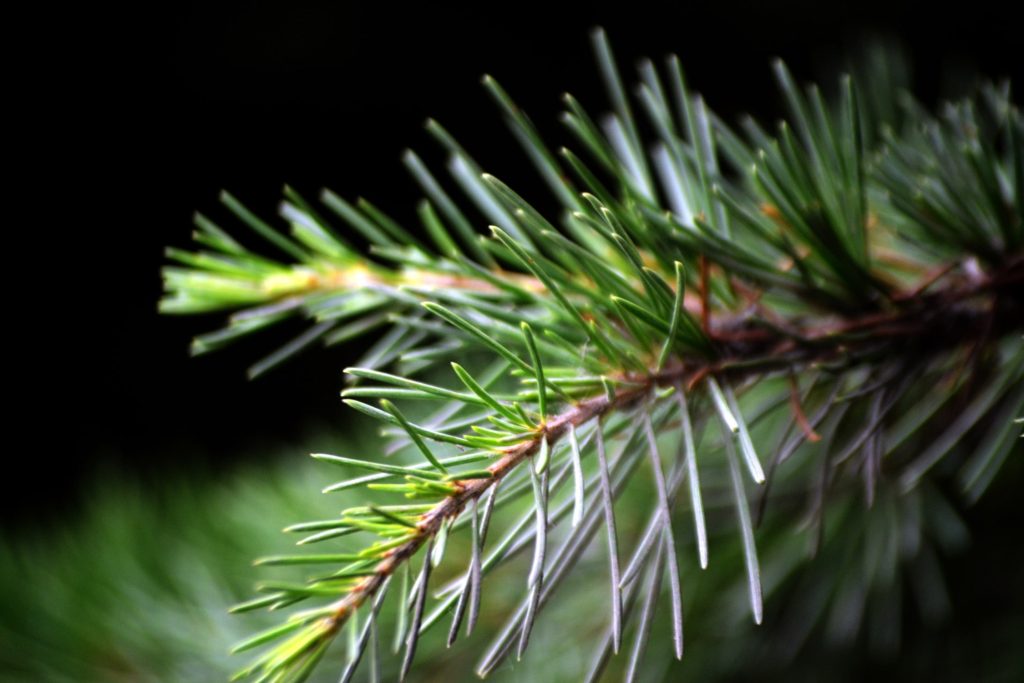
Pine needle tea offers various therapeutic benefits. It supports the respiratory system, boosts the immune system, and reduces inflammation and pain.
Respiratory System Support
Pine needle tea serves as a natural remedy for various respiratory issues. It acts as an expectorant, helping to clear congestion and soothe coughs. The tea’s decongestant properties make it useful for relieving symptoms of colds and other respiratory infections. By reducing mucus buildup, it can enhance respiratory health and ease breathing.
Some bioactive compounds in pine needles also have antimicrobial effects, which can tackle infections in the respiratory tract. Therefore, regular consumption of pine needle tea may help maintain a healthy respiratory system by preventing infections and easing symptoms.
Immune System Enhancement
Pine needle tea is rich in vitamins and antioxidants that can enhance the immune system. One notable benefit is its high vitamin C content, which has been historically used to prevent scurvy. Vitamin C strengthens immune cells, helping the body fight off infections more effectively.
Additionally, the tea contains various bioactive compounds that have antimicrobial properties. These properties aid the immune system in combating a range of pathogens. Drinking pine needle tea can be a natural way to enhance your body’s defenses against common illnesses and infections.
Inflammation and Pain Reduction
One of the key medicinal uses of pine needle tea is its anti-inflammatory effects. The tea contains natural compounds that reduce inflammation, making it beneficial for those suffering from chronic inflammatory conditions.
These anti-inflammatory properties also help alleviate pain associated with conditions like arthritis. The tea’s ability to reduce swelling and irritation contributes to its effectiveness in pain management. Regular consumption may offer a natural alternative to conventional anti-inflammatory medications, providing relief from prolonged inflammation and associated pain.
Culinary Applications
Pine needle tea offers unique ways to be brewed and paired with various foods. Its distinct flavor profiles can be enhanced with simple ingredients to bring out the best taste.
Brewing Methods and Recipes
To make pine needle tea, start with either fresh pine needles or dried pine needles. First, rinse the needles thoroughly to remove any dirt or debris. Chop the needles into smaller pieces to enhance flavor extraction.
Hot Tea Recipe:
- Boil a pot of water.
- Add 1/4 cup of chopped pine needles.
- Steep for 3-4 minutes for fresh needles or up to 10 minutes for dried needles.
- Strain the tea with a tea strainer.
- Optionally, add honey or lemon.
Iced Tea Recipe:
- Prepare the hot tea as instructed.
- Allow the tea to cool.
- Pour the cooled tea over ice.
- Add slices of citrus for extra flavor.
Flavor Profiles and Pairings
Pine needle tea has a piney aroma with a mild citrus flavor. The tea may have slight bitter notes, especially when steeped longer.
For a classic pairing, add a squeeze of lemon or a drizzle of honey to enhance its natural sweetness. Mint leaves can provide a refreshing contrast to the piney notes.
In the kitchen, pine needle tea pairs well with light foods like salads and fruits. Its unique taste also complements fish dishes. Try pairing it with smoked salmon or grilled trout for a delightful culinary experience.
Safety and Side Effects
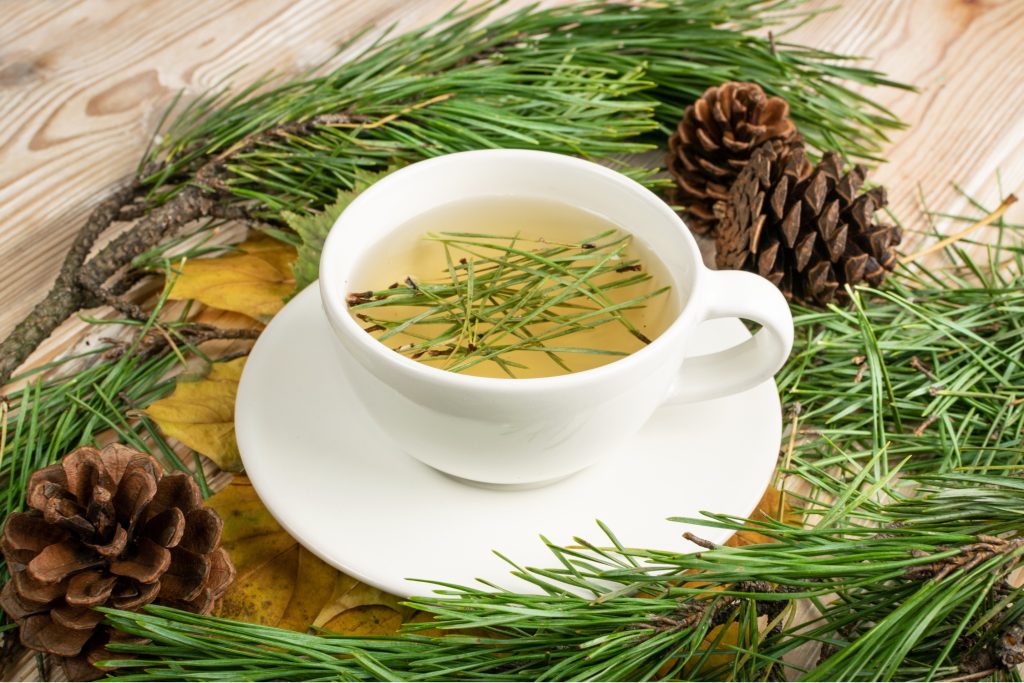
Drinking pine needle tea comes with risks, especially if prepared incorrectly or if toxic varieties are used. It’s crucial to be aware of the potential side effects and precautions.
Toxic Varieties to Avoid
Some species of pine and their relatives are toxic. Yew and Ponderosa Pine are particularly dangerous. Symptoms of toxicity include vomiting, nausea, dizziness, and headaches.
Brewing tea with yew trees can be harmful as they contain toxic compounds. Ponderosa Pine contains isocupressic acid, which is a specific risk to pregnant animals. Cypress and certain other pine species should also be avoided. Always verify that the pine needles come from a safe tree species such as Pinus strobus, also known as Eastern White Pine.
Precautions for Specific Groups
Some groups should be extra cautious when drinking pine needle tea. Pregnant women should avoid it altogether due to risks like miscarriage linked to isocupressic acid found in some pines. People with allergies or a history of allergic reactions should consult a doctor before consuming the tea.
Those prone to nausea or dizziness should start with a small amount to test tolerance. Children and the elderly are also advised to consume pine needle tea only after consulting with healthcare professionals due to their potential sensitivities to toxins.
Historical and Cultural Significance
Pine needle tea has a rich history and is deeply rooted in both ancient traditions and modern practices. This brew has been valued across various cultures for its healing properties and its role in wellness.
Traditional Uses in Indigenous Cultures
Indigenous peoples of North America, such as Native Americans, greatly valued pine needle tea for its health benefits. They used white pine (Pinus strobus) needles to prepare teas and remedies to treat coughs, colds, and other respiratory issues. Jacques Cartier, an early French explorer, documented the use of pine tea by Native Americans to treat scurvy during his travels.
In Korea, pine needle tea is a traditional beverage known for its ability to invigorate the body and mind. It was often used to alleviate fatigue and enhance vitality. The eastern white pine and cedrus deodara were particularly favored for their medicinal properties.
Pine Tea in Modern Alternative Medicine
Today, pine needle tea remains a staple in alternative medicine. It is believed to support immune function due to its high vitamin C content and antioxidant properties. Bioactive compounds in pine needle tea, particularly from species like red pine and Scots pine, may help reduce inflammation and act against free radicals.
Pine needle tea has also gained popularity for its potential anti-cancer effects and its ability to improve respiratory health. Modern practices often highlight its role in detoxifying the lymphatic system and boosting overall well-being. Many herbalists continue to recommend pine needle tea as a natural remedy for various ailments.
Frequently Asked Questions
What are the potential health benefits of pine needle tea for the skin?
Pine needle tea contains antioxidants that help reduce inflammation and promote skin health. These compounds help fight free radicals and may improve the skin’s overall appearance.
Can pine needle tea have an effect on weight loss?
Pine needle tea can support weight loss by boosting metabolism. Specific molecules found in pine needles may bind to receptors that influence metabolism, potentially aiding in weight management.
Are there any side effects associated with consuming pine needle tea?
Most people can consume pine needle tea without issues. However, some might experience mild side effects, such as stomach discomfort. It’s good to consult a healthcare provider before adding it to your routine.
How does pine needle tea impact testosterone levels?
There is no strong scientific evidence that pine needle tea directly affects testosterone levels. More research is needed to understand any potential link.
Is it safe to consume pine needle tea daily?
Pine needle tea is generally safe for daily consumption. Always ensure the pine needles are from a safe, non-toxic species, and consider consulting a healthcare provider if you have specific health concerns.
What are the benefits of pine needle tea for kidney function?
Pine needle tea may provide benefits for kidney function due to its antioxidant properties. These properties help protect cells from damage, which is beneficial for kidney health.
References:
Flavor Compounds of Pine Sprout Tea and Pine Needle Tea
This website does not provide medical advice.
All information provided on this website, and on associated social media networks, including but not limited to texts, images, and numbers are for general information purpose only. It is not intended as medical advice and it does not include all possible precautions, side effects, or interactions that may occur. Neither NaturalLivingOnline.com nor its author/founder take responsibility for how you use this information. Statements contained on NaturalLivingOnline.com have not been evaluated by the FDA. You should conduct thorough research via multiple sources and consult your physician or qualified doctor before using any essential oil or herbal remedy. Information on NaturalLivingOnline.com must not be relied upon for medical, legal, financial or other decisions.

